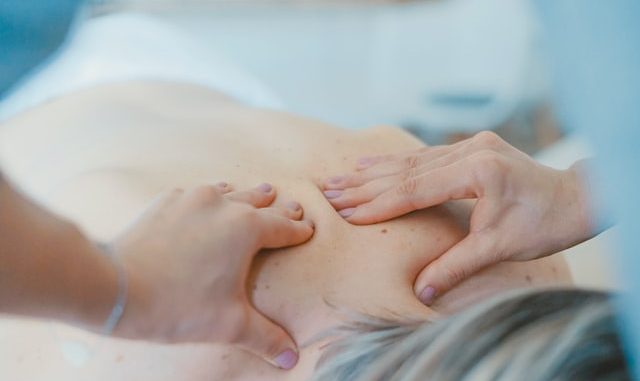
Gallbladder symptoms will be described in the following article. There are several types of gallbladder disorders. We will mention some of the most common gallbladder problems and we will describe the symptoms, too. In general, gallbladder symptoms usually include:
- Nausea
- Bloating
- Burping
- Constipation
- Belching
- Indigestion
- Headache
- Diarrhea
- Gas
- Pain under the ribs, on the right side
- Pain in the right shoulder
- The color of stools can change (it usually becomes lighter)
Gallbladder disorders are usually caused by gallstones. Gallstones can develop inside the gallbladder, or they can form in some other part of the biliary tract. Sometimes, gallstones do not show any symptoms. Many people can live with these stones for years, without even being aware of gallstones.
However, the first symptoms will start as soon as these stones reach certain size. Gallstones can be extremely small, but they can also reach the size of three centimeters. Smaller stones can be removed by ultrasonic waves.
They will be dissolved and then eliminated in natural way. However, some gallstones can lead to serious complications. In some cases, these complications are severe, and they require gallbladder surgery. Even though gallstones can show no symptoms (“silent gallstones”), when they grow larger, the symptoms are likely to occur. The most common symptoms will include:
- Abdominal pain
- Vomiting
- Nausea
- Sensitivity to fatty foods
- Bloating
- Belching
- Indigestion
- Gas
Gallbladder Polyps Symptoms
Gallbladder polyps are lesions that occur in the gallbladder wall. This condition is considered rare, but it is usually asymptomatic, which makes it hard to diagnose. That is why it is hard to tell how many people actually have it. It seems that men are more prone to gallbladder polyps, compared to women. Smaller polyps are non-cancerous, so they can be left untreated for many years; but, if these polyps occur along with some other condition, they can be harmful.
Smaller polyps can be treated with laparoscopic surgery.
Porcelain gallbladder is another problem that is probably caused by gallstones. We say ‘probably’ because the cause is still unclear. However, this condition is characterized by the following symptoms:
- Abdominal pain
- Vomiting
- Jaundice
The pain and vomiting usually start right after meal.
Gallbladder Sludge
Gallbladder sludge is another gallbladder disorder. The causes of gallbladder sludge include extremely poor diet, pregnancy, certain medications, excessive consumption of foods that contain a lot of cholesterol, and drinking too much alcohol.
The common symptoms include:
- Bloating
- Severe pain in the abdomen
- Diarrhea
- Vomiting
- Nausea
- Fever
Gallbladder Attack Symptoms
The symptoms of gallbladder attack usually include:
- Queasiness
- Burping
- Nausea
- Vomiting
- Gas
- Pain in the right shoulder
- Abdominal pain
- Belching
Gallbladder attacks are more likely to happen during the night, and/or after a fatty meal. These episodes can last from several minutes to a few hours. In case you experience any of these symptoms, you have to call your doctor immediately.
Many gallbladder disorders have similar symptoms, so it is important to visit your doctor and see what the problem is. If diagnosed early, some gallbladder problems can be treated non-surgically. If all other options fail, the patient will be advised to undergo gallbladder surgery. Two types of gallbladder surgery are open cholecystectomy and laparoscopic cholecystectomy (this type of gallbladder surgery is considered much safer; it leaves very small scars, because the incisions are smaller.
Small incisions also mean lower risk of infections.) Open cholecystectomy leaves larger scar, and it takes some time to heal. The recovery time will be longer, and the patient will have to stay at home for a while, before he/she gets back to every-day activities.
Sometimes, gallbladder removal is the only option for dealing with gallbladder problems. However, some patients can have gallbladder symptoms even after the surgery. If you start having such symptoms, you need to talk to your doctor immediately. Complications are rare, but they can happen. It is important to notify your doctor in case you experience any kind of problem after the surgery.
People who have had gallbladder surgery will have to change their diet. Some foods will have to be avoided, as well as certain beverages, especially alcohol.

